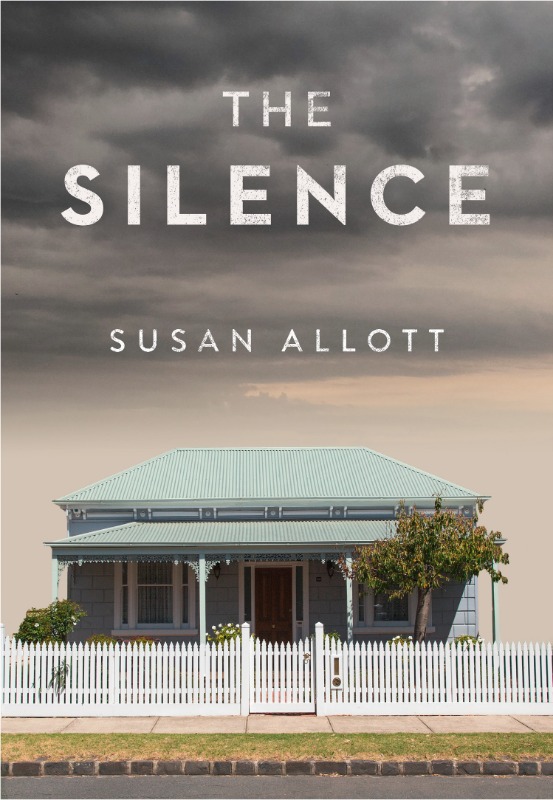search
date/time
 | Lancashire Times A Voice of the Free Press |

Caroline Spalding
Features Correspondent
8:32 AM 7th October 2020
arts
What Is Left Unsaid: The Silence - Susan Allott

Because, for me, The Silence, refers to all that isn’t talked of in real life. What isn’t discussed among friends or between family members, the problems known to all but wholly ignored. Left to fester, the issues also manage to perpetuate; in life we admit that some things don’t simply go away, and will not be resolved until they are confronted.
The story is loosely centred around Isla whom we meet on the first page with a no-holds-barred presentation of herself and her status quo. All cards laid plainly on the table, the reader is left to form their own judgement as the novel progresses. Isla is an Australian, living alone in a basement flat in London, her partner recently departed and she is attempting sobriety. The phone rings in the night with a call from her father back home. a call that sparks a “trill of fear.” Why the fear, Isla doesn’t know, but it’s understandable for a person battling their own inner demons to always assume the worst, because if the worst happens, that, surely, is an acceptable excuse for a drink. Personal failure is always presumed, but there has to be a plausible justification.
This is not a story about Isla’s recovery. We inevitably learn more of her tormented relationship with alcohol, but she is a practical woman; she knows her mistakes, she accepts her failures, there is no time for self-indulgent sympathy. This relationship with booze, as complex as any addict’s relationship with their substance of choice, is conveyed with straightforward practicality and written with compassion and understanding, but the facts are not biased – it is what it sadly is.

Susan Allott
The story alternates between the Sydney of the present, 1997, and the Sydney of 1967, when Isla was five years old. In ‘67, Isla lurks in the wings; the centre stage is occupied by her parents and their neighbours – Mandy, who has disappeared, and her husband, Steve. They play a role in the charade of normalcy, but beneath the friendship they are entangled in doubt and suspicion, jealousy and false pretences – traits that continue to the present day and which are dexterously explored in Allott’s character dialogues and exchanges, both of ‘67 and ‘97.
Conversations are clipped and to the point: words are not wasted. The pace of the novel is brisk, but not rushed – and whilst the observations are more focused on the characters rather than physical descriptions of the locality, we don’t fail to imagine the scenes in vivid detail.
There are familiar tropes: a marriage undermined by alcoholism, misaligned desires between spouses, a man burdened with questions of morality based on his line of work, characters fleeing from what they cannot face, mistakes that are made when things fall apart. There is generational repeat, mistakes recur, past misdemeanours are left unforgotten, resentment suppressed but never extinguished. The characters have genuine, believable flaws - they are on display and for some, they cannot be resolved.

The characters don’t all develop to a positive conclusion and this is not a story that ends with loose ends neatly tied up. There is, of course, a resolution of sorts, but we don’t know what will occur in the next chapters of these characters’ lives.
The Silence is an impressive debut that combines realism with uncertainty, a sense of suspense laced with genuine curiosity. It’s an exploration of what may unfold within a closely bound set of people when cracks appear and are left unrepaired; what happens when relationships are pushed to breaking point, how there is a societal tendency to keep up appearances. Life does progress in thirty years, yet some things do not change. The writing embraces the Australian tendency to say it straight. Candid almost to the point of rudeness, it is here where perhaps we see Allott’s own experience of life 'down under' really shine through; she offers no apology for her characters, and casts no judgement. They are what they are, conveyed in honest and acutely observed detail.
The Silence deserves a wide audience. It is a debut that sets the bar high for Allott’s future work, which should eagerly be anticipated.
The Silence is published by Borough Press
Also by Caroline Spalding...
Review: Cold Enough For Snow By Jessica AuReview: Good Intentions By Kasim AliReview: Strangers I Know By Claudia Durastanti, Translated By Elizabeth HarrisWalking For Wellbeing – It Really Does WorkReview: The Love Songs Of W.E.B. Du Bois By Honorée Fanonne JeffersMore in this series...
Review: The Stranding By Kate SawyerReview: You Let Me In by Camilla BruceInterview With Victoria PrincewillThe Traumatic Legacy of Denial: The Sanatorium By Sarah PearseThe Imposter by Anna Wharton: A ReviewGirl In The Walls By A.J. Gnuse - A ReviewReview: Lightseekers By Femi KayodeAn Interview with Alice Ash - Author of Paradise Block‘ …Really Real Poor People, Surviving Alone Together’: Paradise Block By Alice AshInterview: Neema ShahKololo Hill By Neema Shah: A ReviewInterview With Catherine Menon - Author Of Fragile Monsters‘Ghosts Everywhere I Look. Ghosts Everywhere I Don’t’: Fragile Monsters By Catherine MenonInterview: Bethany CliftLast One At The Party By Bethany Clift: A Review'There Is No Such Thing As Fate, Because There Is Nobody In Control': My Name Is Monster By Katie HaleInterview With Frances Quinn - Author Of The Smallest Man'A Hero Of Our Time!': The Smallest Man By Frances QuinnInterview: Thomas McMullan, Author Of The Last Good ManReview: The Last Good Man By Thomas McMullan